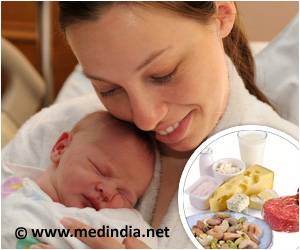Health policies designed to improve birth weight can help improve human capital in resource-poor settings.

‘Health policies designed to improve birth weight can help improve human capital in resource-poor settings.’





Previous studies show that LBW infants have a higher mortality risk in their first month of life while those who survive infancy face worse health, human capital, IQ, and labor market outcomes. An estimated 18% of Indian infants are LBW. CDDEP researchers along with collaborators at Sam Houston University, International Institute for Population Sciences (IIPS) employed instrumental variable regression models with longitudinal data from the Indian Young Lives survey (YL) survey in Andhra Pradesh to estimate the effect of birth weight on cognitive development during childhood in India.
The study is forthcoming in Economic Papers: A journal of applied economics and policy.
Although there is considerable research on the effects of LBW on outcomes in adulthood, there is limited evidence linking LBW with mid-childhood outcomes through which the adult outcomes manifest.
Mid-childhood outcomes are more amenable to policy interventions than adverse outcomes in adulthood. This is the first study we are aware of that estimates the effects of birthweight on cognitive outcomes in the mid-childhood years (5-8 years) of children in India.
Advertisement
Overall, the study found that:
- A 10 percent increase in birth weight increases cognitive test scores by 0.11 standard deviations at ages 5-8 years.
- LBW infants experienced lower test scores compared with normal birth weight infants.
- The positive effect of birth weight on a cognitive test score is larger for girls, children from rural households, and those with less-educated mothers.
- Health policy must be designed to improve neonatal outcomes in India and other LMICs, with policies and initiative that promote access to prenatal care and maternal nutrition to reduce the risk of LBW.
Advertisement
Source-Eurekalert










